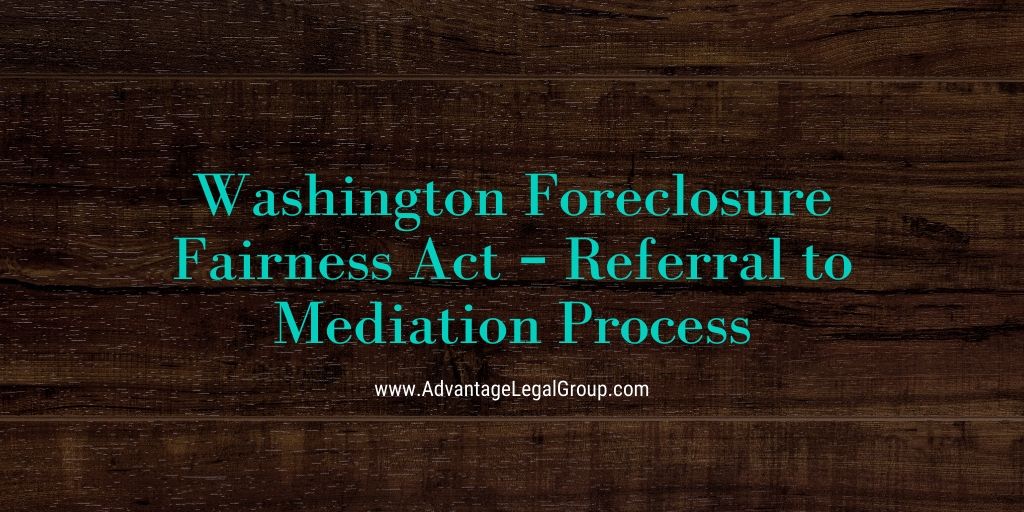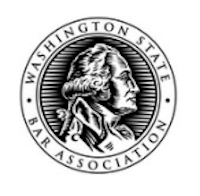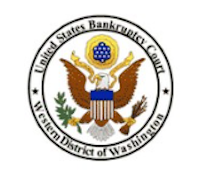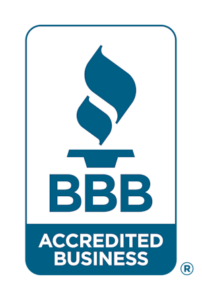Washington Foreclosure Fairness Act – Referral to Mediation Process
In 2011 Washington and passed the Washington foreclosure fairness act to help homeowners who are facing foreclosure. This program was designed to help homeowners and their lenders reach a resolution about foreclosures or other possible options for the homeowners.
Homeowners must be referred to Mediation by housing counselor or an attorney to be part of the foreclosure fairness program. A law firm like Advantage Legal Group can help you access the foreclosure fairness program or help you determine which option is best for you.
This new program now requires lenders to notify borrowers prior to foreclosure of the availability of foreclosure counseling and the potential for mediation. Understanding the mediation process can be confusing and time-consuming. Having a knowledgeable law firm like Advantage Legal Group on your side, can help you find not only your best option, but help you do it in a timely matter.
Advantage Legal Group can help you through the mediation hurdles. Did you know that some lending institutions are exempt? Banks and credit unions that are exempt from the mediation process of the Washington Foreclosure Fairness Act have less than 250 sales of owner-occupied residential real estate property.
Washington Foreclosure Fairness Act – Mediation Process
Key information to know for scheduling mediation sessions:
• Department of Commerce will assign a mediator within 10 days of receiving Referral to Mediation.
• Beginning three days after commerce sends an assignment letter to you via e-mail, you have 70 days to conduct the foreclosure mediation session.
• Mediation must take place within the county where the borrower of lives, unless both parties agree to a change of location.
• Model Notification form must be sent to all parties at least 30 days before the mediation session, if used.
• Payment of fees to mediator must be paid within 30 days of the assigned letter from department of commerce.
• Within 23 days of receiving of the referral to the foreclosure mediation letter from the department of commerce, you’ll need to complete and send in the initial package for the Home Affordable Modification Program also known as HAMP to both the mediator and the beneficiary.
HAMP package includes forms:
- Request for Modification and Affidavit (RMA) form. (A three-page form that includes household income expenses debts assets in tax returns for the past two years as well as hardship affidavit if applicable.)
- Tax forms 4506 – EZ or form 4506 T for the previous two years
- Verification of income
- Dodd-Frank Certification Form
At any time if the mediator believes you are not acting in good faith they may cancel the mediation and the bank or other beneficiary may proceed with a foreclosure sale. Examples of not acting in good faith are the following:
- Not providing the HAMP package on time
- Not providing the mediation fee on time
- Lack of response to mediators e-mails
- Lack of response to mediators calls
This new program requires lenders to notify borrowers prior to foreclosure of the availability of foreclosure counseling and the potential for mediation. Understanding the mediation process can be confusing and time-consuming. Having a knowledgeable law firm like Advantage Legal Group on your side, can help you find your best options, done in a timely matter, and show that you are acting in good faith.






